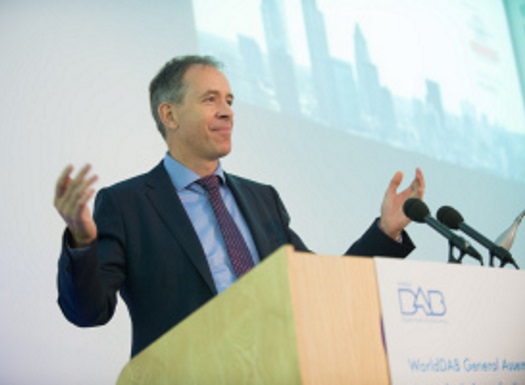Patrick Hannon, President, WorldDAB
“Why invest in DAB when we can just use mobile networks for radio?”
The DAB or mobile networks argument is something we often hear at events and in conversation with DAB sceptics. But do the claims for mobile platforms provide a complete and accurate picture?
To address this issue, we have spoken to industry experts from the radio and mobile worlds to better understand the potential and limitations of 4G and 5G services.
It’s clear that mobile can provide a complementary service to broadcast radio – but to deliver a comparable service would require a massive investment and there is no business case for mobile operators or broadcasters to fund it.
There are four reasons why mobile is inferior to DAB+ as a distribution platform for radio:
- The infrastructure cost of providing adequate coverage via mobile
- Cost to listeners (data on the move)
- The risk of gatekeepers
- Reliability in emergencies
Infrastructure costs
Providing DAB+ coverage is much easier and requires significantly lower investment in infrastructure than trying to deliver equivalent coverage for radio via mobile – just a handful of transmitters can deliver DAB+ across wide areas, compared to thousands of sites for 3G or 4G services. Mobile coverage also degrades significantly the further away you are from the cell site, whereas DAB+ delivers consistent quality right out to the edge of its range.
DAB is a much more cost-effective way of reaching large numbers of people. Research from the EBU calculated the cost of distributing radio for an ‘average’ European national broadcaster. DAB costs are around $2m capex plus $1m opex per year – but if broadcasters switch to IP these costs jump considerably to $9.8m per year.
Cost to listeners
Broadcast radio has always been free-to-access compared to mobile services where data needs to be paid for. Listening to radio over mobile would require around 2.2GB of data per month (based on the EBU’s average radio listening figures) – this needs to be paid for by someone, most likely the listener.
The risk of gatekeepers
As a free-to-access service, broadcast radio gives equal weight to all stations and services. Mobile platforms can be controlled by a gatekeeper – potentially denying priority to established broadcasters. Not only is this bad for the listener, it’s bad for choice and can reward the biggest players in the market and stifle competition.
Reliability in emergencies
Broadcast radio delivers to millions of people, can be relied upon in times of emergency and is free-to-access. In times of emergency or crisis, radio can be relied upon to get information out to people. In contrast, it is at exactly these times that mobile networks are most likely to become overloaded and fail to cope with demand, leaving people unable to make or receive important calls.

